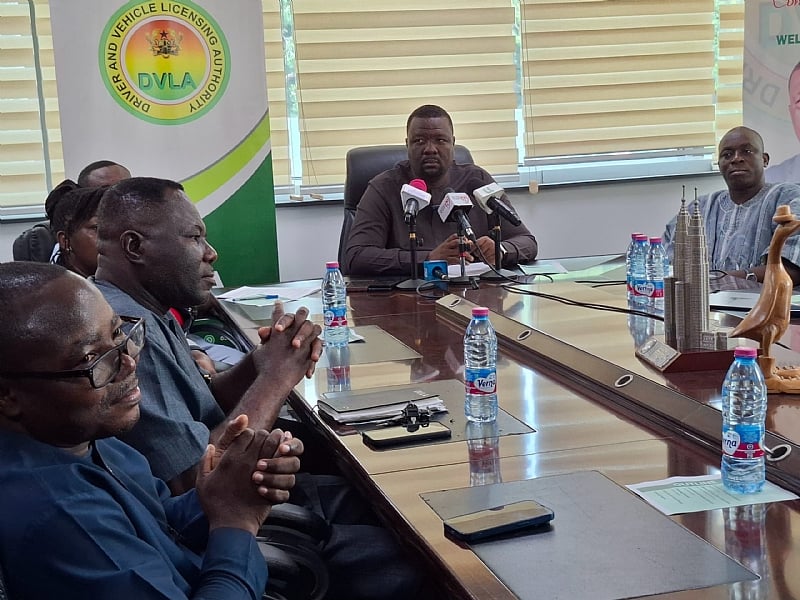The Driver and Vehicle Licensing Authority (DVLA) of Ghana has announced a two-week ultimatum for the registration of all unregistered excavators and farm equipment, taking a decisive step to combat illegal mining activities and enhance regulatory oversight within the country. This mandate, stemming from the Road Traffic Act, 2004 (Act 683), aims to bring all such machinery under the umbrella of official registration, enabling effective tracking and accountability. The DVLA Chief Executive, Mr. Julius Neequaye Kotey, highlighted the prevalence of unregistered excavators operating on mining sites, a situation that obstructs law enforcement efforts to identify and apprehend those engaged in illegal mining. This registration drive is a critical component of a broader strategy to curb the environmental and economic damage caused by illicit mining operations.
The DVLA’s initiative targets the registration of all excavators and “mechanically propelled” farm equipment, encompassing a wide range of machinery used in both mining and agricultural sectors. The two-week grace period, commencing with the announcement, provides owners with a limited window to comply with the registration requirement. Following this period, the DVLA, in conjunction with law enforcement agencies, plans to deploy a task force to various mining sites across the country. This task force will be empowered to confiscate any unregistered equipment, enforcing the provisions of the Road Traffic Act and sending a strong message of deterrence to potential violators. The DVLA’s proactive approach underscores the seriousness of the issue and the government’s commitment to regulating these industries.
The rationale behind the registration mandate is multifaceted. It seeks to establish a comprehensive database of excavators and farm equipment, facilitating the identification of owners and operators. This increased transparency will aid in investigations related to illegal mining and other illicit activities, allowing authorities to trace the use of specific equipment and hold individuals accountable. Furthermore, registration will enable the DVLA to monitor the movement and deployment of such machinery, potentially identifying patterns of activity indicative of illegal operations. This data-driven approach will strengthen the DVLA’s regulatory capacity and contribute to more effective enforcement.
The implications of non-compliance are significant. Owners who fail to register their excavators and farm equipment within the stipulated two-week period face the risk of confiscation by the authorities. This measure aims to deter further violations and underscore the importance of adherence to the registration requirement. The seized equipment may then be used by the DVLA for purposes compliant with the Road Traffic Act. Additionally, owners and operators who are found to have used their own machinery, and are caught in possession of unregistered equipment risk penalties under Act 683.
The DVLA’s proactive approach extends beyond the two-week ultimatum and confiscation efforts. Going forward, the Authority plans to implement stricter measures to ensure compliance with the registration requirement. Starting June 1, 2025, the DVLA, in collaboration with the Ghana Police Service, will actively monitor mining sites and other operational areas. Any unregistered excavator found in use will be subject to immediate confiscation, further strengthening the enforcement of the registration mandate. This ongoing collaboration between the DVLA and the Police Service signifies a long-term commitment to tackling illegal mining and promoting responsible equipment usage.
This comprehensive strategy, encompassing the registration ultimatum, task force deployment, and ongoing collaboration with law enforcement, reflects the DVLA’s determination to address the challenges posed by unregistered excavators and farm equipment. By enforcing the provisions of the Road Traffic Act and enhancing its regulatory oversight, the DVLA aims to curb illegal mining activities, protect the environment, and foster sustainable development within Ghana’s mining and agricultural sectors. This initiative represents a significant step towards greater accountability and transparency within these industries and sets the stage for continued efforts to combat illegal practices.














